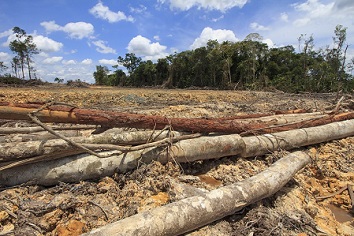The landmark reports launched by IPBES present major challenges to human well-being and highlight options to protect and restore nature and its vital contributions to people.
Biodiversity – the essential variety of life forms on Earth – continues to decline in every region of the world, significantly reducing nature’s capacity to contribute to people’s well-being. This alarming trend endangers economies, livelihoods, food security and the quality of life of people everywhere, according to four landmark science reports released recently, written by more than 550 leading experts, from over 100 countries.
 The result of three years of work, the four regional assessments of biodiversity and ecosystem services cover the Americas, Asia and the Pacific, Africa, as well as Europe and Central Asia – the entire planet except the poles and the open oceans. The assessment reports were approved by the Intergovernmental Science-Policy Platform on Biodiversity and Ecosystem Services (IPBES), in Medellín, Colombia, at the 6th session of its Plenary. IPBES has 129 State Members.
The result of three years of work, the four regional assessments of biodiversity and ecosystem services cover the Americas, Asia and the Pacific, Africa, as well as Europe and Central Asia – the entire planet except the poles and the open oceans. The assessment reports were approved by the Intergovernmental Science-Policy Platform on Biodiversity and Ecosystem Services (IPBES), in Medellín, Colombia, at the 6th session of its Plenary. IPBES has 129 State Members.
The extensively peer-reviewed IPBES assessment reports focus on providing answers to key questions for each of the four regions, including: why is biodiversity important, where are we making progress, what are the main threats and opportunities for biodiversity and how can we adjust our policies and institutions for a more sustainable future?
 In every region, with the exception of a number of positive examples where lessons can be learned, biodiversity and nature’s capacity to contribute to people are being degraded, reduced and lost due to a number of common pressures – habitat stress; overexploitation and unsustainable use of natural resources; air, land and water pollution; increasing numbers and impact of invasive alien species and climate change, among others.
In every region, with the exception of a number of positive examples where lessons can be learned, biodiversity and nature’s capacity to contribute to people are being degraded, reduced and lost due to a number of common pressures – habitat stress; overexploitation and unsustainable use of natural resources; air, land and water pollution; increasing numbers and impact of invasive alien species and climate change, among others.
Unfortunately it becomes clear from the main findings of the assessments that meeting the Global Development Goals is jeopardized by an overall failure to prioritize policies and actions to stop and reverse biodiversity loss. However, promising policy options exist for each of the regions.
Please click here to read the full media release.
Photo credits:
Rich Carey/Shutterstock.com
Ethan Daniels/Shutterstock.com
